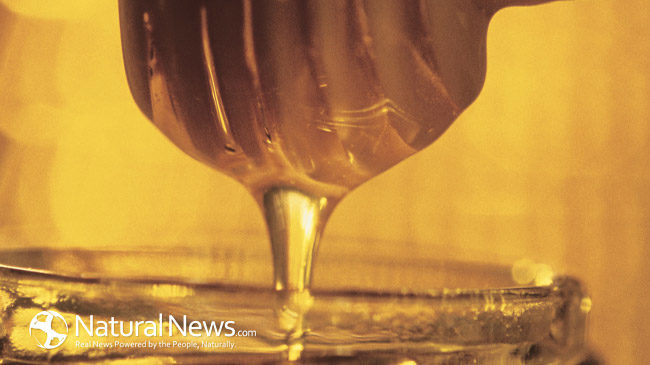Manuka honey is a unique mono-floral honey made from the manuka bush native only to New Zealand and studies have shown its incredible healing properties come from a specific ingredient which has anti-bacterial, anti viral, anti microbial, anti septic, anti inflammatory, antioxidant and anti fungal action. Manuka honey advocates swear by its ability to fight infectious wounds and other conditions.
Honey has been used in many cultures as a medicinal agent for treating all kinds of conditions and especially due to its powerful anti bacterial properties, honey has always been much sought after. However, the anti bacterial action of honey depends on the source and the time and method of collecting it. Therefore certain types of honey are much more charged with healing properties than others.
The main ingredient in manuka honey that bestows it with its special anti bacterial effect is hydrogen peroxide. To be more precise, the bees inject the nectar collected from the manuka flowers with an enzyme (glucose oxidase) which (when the honey is consumed), mixes with the body fluids thereby releasing hydrogen peroxide. This antibacterial hydrogen peroxide is potent enough to affect bacteria but not nearly strong enough to damage tissue.
A scientific study on manuka honey conducted during the early 80s in the University of Waikato in Hamilton, New Zealand found that some samples of the honey had a non-peroxide component. Further scientific studies were conducted on these samples to isolate the hydrogen peroxide, yet the anti bacterial effect of these samples remained unchanged. This non-peroxide anti-bacterial component of the honey was found to be methylglyoxal (MG) which is found in most honey yet is very high in manuka honey. The nectar of the manuka flowers is rich in a compound called dihydroxyacetone which is converted to release MG. The concentrtion of MG is used as a measure of the healing properties of the honey and has been named UMF or unique manuka factor. Consequently it was found that the higher the UMF the higher antibacterial and anti viral properties of the honey.
Manuka honey is highly recommended for people with weak immune systems. It is important to look for the term UMF on the label and the level of UMF indicated should be 16+ or higher if it is to be used as a medicine rather than as a spread on your toast. This level is decided upon by the honey industry which has come up with its own rating scale.
Manuka honey can be used to heal minor cuts and wounds, reduce cholesterol, treat sinus infections, gastrointestinal problems and reduce systemic inflammation.
There could be conditions such as diabetes where manuka honey is a bane rather than a boon and cannot be used to heal ulcers caused by diabetes. The manuka honey used to treat wounds is sterilized and specially prepared as a dressing. Recent research has shown that manuka honey could be used in the treatment of gum disease and regular intake could well prevent a build of plaque in the oral cavity. It has been approved by the National Cancer Institute in America to be used as an anti inflammatory to reduce esophageal inflammation due to chemotherapy. Another reported positive effect is that antibacterial manuka honey doesn’t give rise to resistant strains due to repeated exposure to it.
It has been advised, however, that manuka honey might be to the detriment of those allergic to pollen or bees or of those with a risk of high blood sugar.
Although very appealing for its range of health benefits and delicious taste, manuka honey had better be used as a medicine only under the guidance of an expert.





